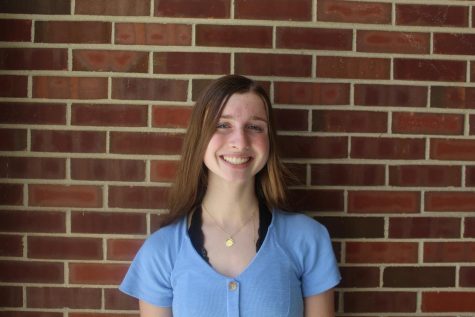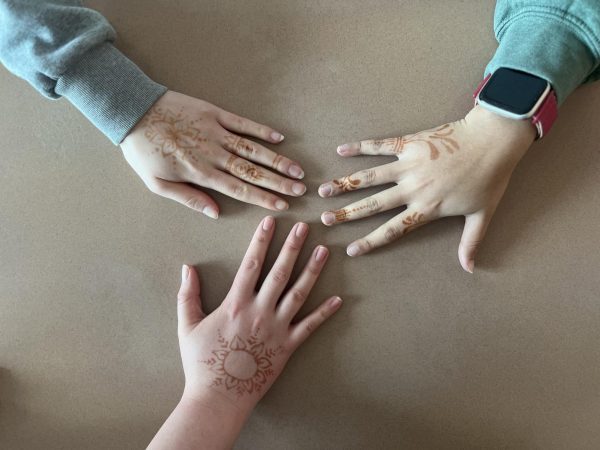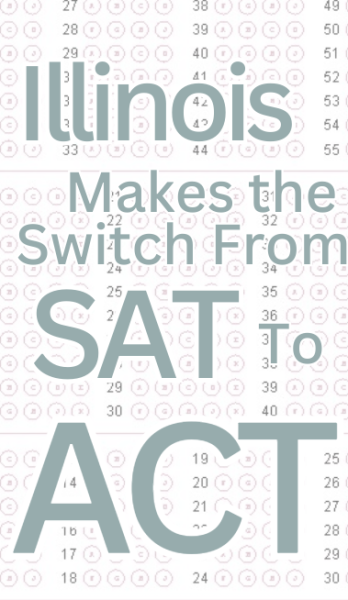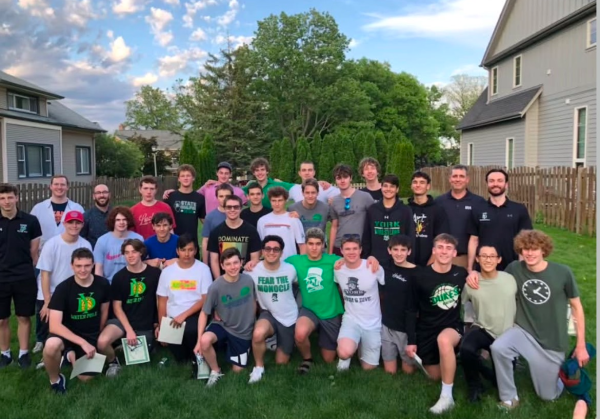D205 heightens support for social emotional wellness in community and classroom
Seniors recognize their main stressors as they finish out their last few weeks of high school.
York is a top tier public school. We exceed the state average in math proficiency, ELA proficiency, graduation rates, early college coursework and post-secondary enrollment. However, we still have struggles and concerns as a school community. As of March 11, this year at York, there have been 46 hospitalizations due to mental health crises as well as 17 recurrent hospitalizations of this nature. The YSS team and administrators, along with District 205 and the Board of Education are aware of the situation and are making plans to address this across the district.
“I think it is time to start talking about it and work together because it is going to take an entire community to solve some of these issues; the school district needs to work more proactively with multiple groups,” former School Board member Shannon Ebner, who recently completed her term, said. “It needs to be a community wide effort, and I think the community is ready for that.”
On a national scale, the National Institute of Mental health reported that 30 percent of girls and 20 percent of boys ages 13-18 in the US have a diagnosed anxiety disorder, double the rates of 30 years ago. Depression has also risen. Johns Hopkins Health Review reported a 37 percent increase in adolescent clinical depression. This is taking a dire toll on our generation; the National Hospital Ambulatory Medical Survey reports that ER visits as results of suicide attempts and self harm have doubled from 2007 to 2015. District 205 is no different.
“This is my ninth year at York and my thirteenth year as a counselor in general, and since I’ve started in counseling, I’ve seen a definite increase in anxiety and depression,” counselor Lisa Julian said. “There is an increase in hospitalization and of school refusal, but it all really goes back to the anxiety and depression.”
As such, the School Board has been increasing a push toward developing a plan to address Mental Health in a holistic manner.
“The name of the initiative is Social and Emotional Wellness in District 205,” Dr. Shannon Ebner, who recently completed her term on D205 School Board, said. “We want to go through the focus group interviews, forums, one-on-one interviews, kind of gathering the information and see what others think about the root causes and problems.”
The plan is to bring together all the angles of the community dealing with mental health, so, in keeping with the holistic approach, they will be bringing together many different groups in Elmhurst who are supporting social-emotional wellness. A student panel will also be included in these discussions. The aim is to “tie together” groups with a common goal in order to create a more effective community wide initiative.
“The school’s role is important, but my observation is that the school is taking on more of a role in meeting those mental health needs that used to be addressed by family, church, community,” said a local Chicago area public school social worker, who wishes to remain anonymous. “Those things seem to be shrinking, and the pressure on the school to provide those services is increasing. If you put the burden on any one agency, whether it’s a school, a community mental health agency, or a family, it’s too much.”
As promising as the concept seems, this initiative is still “in the idea or development stage” according to Ebner, and no official plans have been approved yet.
The initiative, brainstormed at a March 11 school board meeting focusing on behavioral health, was a step toward beginning a community conversation about how to address the specific issue in the community. Getting people talking may be the first domino to fall in the chain needed to bring awareness to behavioral health in the district. However, around the community, conversations are already taking on this cause.
York-hi staff had the opportunity to sit down with Assistant Principal for Student Services Melissa Moore. She has been a part of a recent District 205 wide student services meetings of social workers, school psychologists and counselors. The goal of the meetings has been to integrate Social Emotional Learning into the everyday lives of students. From preschool to senior year, staff is prioritizing Behavioral Health as students develop into young adults.
“We want to start supporting students long before it becomes hospitalization,” Moore said.
In accordance with the initiative, freshmen this year participated in program called Elyssa’s Mission during health class. Elyssa was a Chicagoland teenage girl who bravely fought Post Traumatic Stress Disorder (PTSD) and Depression. In her honor, the local foundation Elyssa’s Mission provides a free curriculum to schools called Signs of Suicide in order to raise awareness for the prevention of suicide. Students are taught the warning flags of suicidal ideation or a depressive state and how to properly take critical action. In addition, freshman went through a mental health screening. In both semesters, multiple students were identified for additional support that had not been previously on YSS’s radar making it, as Moore said, “worth it”.
This is representative of a larger issue in providing preventative mental health support before reactionary supports are necessary. The School Board found that a large portion of students who are hospitalized for behavioral health concerns are high achieving and highly involved. In other words, students who may not have raised any cause for concern. As Moore described it, these students may be able to put on a perfect face at school. Identifying these students before they need critical supports is extremely complicated.
“A lot is referral,” said Moore. “We rely on parents to say I’m worried about my student.”
Important referrals have also come from students and teachers, so everyone is encouraged to report any concerns to a counselor.
Besides referrals, students may also be identified in weekly meetings with YSS staff. Counselors, social workers and the school psychologists to identify students who may be showing red flags. Along with qualitative input from counselors and social workers face-to-face interactions with students, school Psychologists use data analytics to help identify what supports would benefit which students.
“Grades and attendance are the number one things that usually drop when mental health is at a low,” Julian, who is a part of these meetings, said.
These students are given individualized supports that they can benefit and learn from, but the current goal of discussion within the district is to find a way to not make these supports pull-outs, but rather mainstream and normalize social emotional learning and intervention before further steps need to be taken.
“It’s exciting to think that we could infuse this into what we do on a daily basis,” Moore said.“Students may have experience with such a heavy academic push. [But now] students can actually experience that we have a range of priorities and support them academically, socially, and emotionally.”
If you are concerned for yourself or a loved one please call or text 1-800-273-8255 for free crisis help. Your counselor or a friend’s counselor are also available to provide support.

Paige Szipszky is very excited to be the Editor-in-Chief of This is York and York-Hi this year. This is her sixth year being involved in student media,...

CeCe Lampa is a senior entering her fourth year on the This Is York staff. When she is not reporting, she enjoys dancing, singing, musical theater and...










